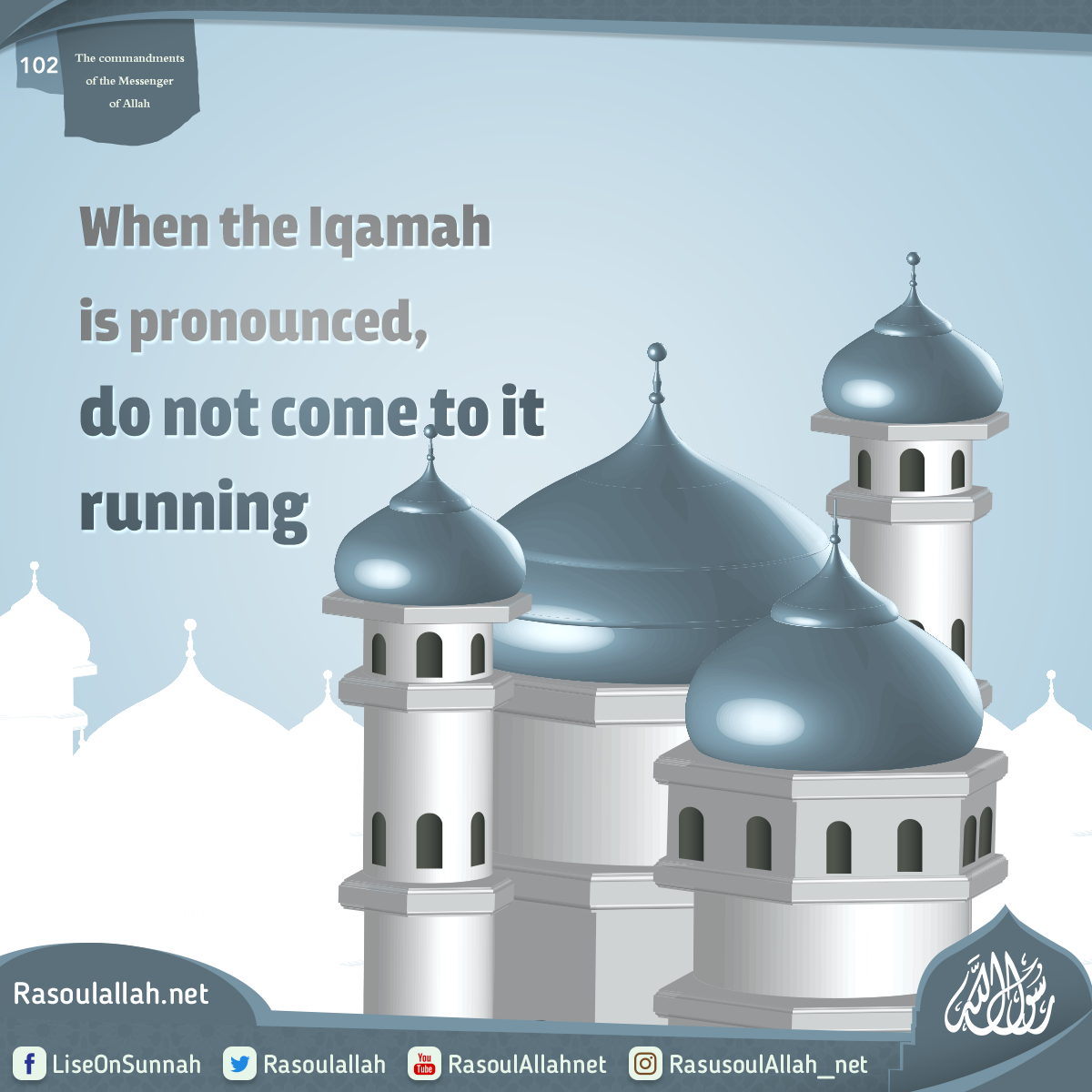When the Iqamah is pronounced, do not come to it running

Abu Hurairah ( May Allah be pleased with him ) reported:
I heard the Messenger of Allah ( may the peace and blessings of Allah be upon him ) saying, "When the Iqamah is pronounced, do not come to it running, you should walk calmly with tranquility to join the congregation. Then join in what you catch for and complete what you miss." [Al-Bukhari and Muslim]. In Sahih Muslim it is added: the Messenger of Allah ( may the peace and blessings of Allah be upon him ) said, "For when one of you is walking for Salat, he is, in fact, engaged in Salat."
The prayer is the connection between the slave and his Lord, and the spirit of reverence. If the slave performed it properly, his heart will submit to his Lord willingly.
In order to ensure that the slave will perform the prayer properly, the Prophet ( may the peace and blessings of Allah be upon him) prohibited the Muslim from the speed walking if the Iqamah is pronounced; the speed walking prevents him from evoking the spirit of the prayer, as well as the completeness of the due reverence and the tranquility that should accompany it..
The speed walking may lead to a shortness of breath which will surely cause one to be less reassured.
The speed walking may lead to falling on the ground or any other harm..
Why would one hasten to walk to pray whereas Allah guaranteed the reward according to his intention!!
Whoever performs ablution in his house, goes out to pray and finds the imam has preceded him with a rak'ah or two or three rak'ahs, there is nothing wrong with it as long as he has gone out in time and does not slow down or occupy himself with any thing other than the prayer. If he is close to the mosque, it is recommended for him to expand his pace slightly, so that he enters the row without being tired of walking.

